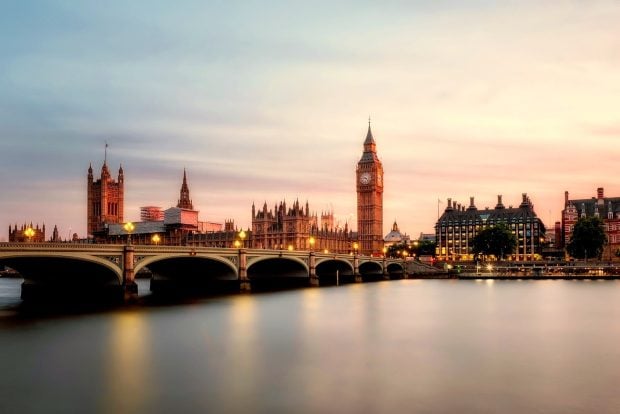Fears over civil service politicisation as Johnson enters fray with EU

All UK civil service communications staff have been instructed to report “unhelpful narratives” on Brexit in the press and online to the Cabinet Office, according to a leaked document which appears to push the boundaries of civil service neutrality.
The document, sent to HuffPost UK, says “all rebuttal lines are to be approved by Number 10”, and that staff must “counter emerging narratives” and ensure all departments push the Downing Street line. “If action not completed, escalate as needed,” it says.
In the UK, civil service communications professionals are tasked with explaining and promoting government policy, but barred from overly political work – which is reserved for special advisers. Shadow Cabinet Office minister, Jon Trickett, told HuffPost Boris Johnson was “playing with fire”, adding: “Political neutrality is a central principle which has endured in relation to civil servants for more than 150 years. It is essential that the present government does not breach this basic part of the constitution. To do so would further imperil faith in politics, which is already at a low ebb.”
Dave Penman, general secretary of civil service managers’ union the FDA, told HuffPost: “Assessing the press and political narratives of the day is clearly part of a modern government but there is a real difference between mis/dis information and political spin on ‘unhelpful narratives’.”
The news outlet also reports that Alastair Campbell, former PM Tony Blair’s communications chief, has called on civil servants to keep a record of “overtly political” requests, and said the Cabinet Secretary should assure civil servants they will not be punished for refusing to do political work.
The document will heighten fears over the civil service’s politicisation sparked by the arrival in government of Dominic Cummings, who is prime minister Boris Johnson’s most senior adviser. Cummings has long criticised the UK’s permanent civil service, and during his previous stint as a special adviser in the Department for Education challenged the civil service appointments process. He later wrote that during his time there “we bent or broke the rules”, “replacing rubbish officials and bringing in people from outside”.
Negotiating or blame-shifting?
The leaked document comes in the same week that Johnson sent a letter to the president of the European Council, Donald Tusk, in which he called the Irish border backstop – negotiated over years by his predecessor Theresa May – “anti-democratic” and “simply unviable”.
Under the backstop, May agreed to ensure that no hard border would arise between the Republic of Ireland and Northern Ireland by promising to keep the whole of the UK in a customs union with the EU, and retaining many Single Market rules within Northern Ireland. The UK would only be able to leave the backstop when ‘alternative arrangements’ – presumably involving new technologies and remote monitoring – had been put in place.
But Tory Brexiteers and Northern Ireland’s Democratic Unionist Party – on which Johnson depends for his majority – hated the provision, which would have led to a growing regulatory border between Great Britain and Northern Ireland if the UK had diverged from Single Market standards. Despite arguing that ‘alternative arrangements’ could quickly be put in place, they teamed up with Opposition parties to defeat May’s deal three times in the House of Commons.
In his letter, Johnson said the government remains “committed to working with Ireland on the peace process, and to furthering Northern Ireland’s security and prosperity”, and that it wants to “find solutions to the border which work for all”. However, noting that under the backstop the UK would be faced with a choice between remaining aligned to EU rules or seeing a border emerge in the Irish Sea, he said: “Both of those outcomes are unacceptable to the British government.”
Delicate balance
Johnson proposed that the backstop be replaced with a commitment to put in place alternative arrangements before the end of the transition period, and said the government was “ready to look constructively and flexibly” at solutions. And he offered to accept a legally binding commitment that the UK would not introduce a hard border, in a move designed to shift the responsibility for any emerging border on the EU.
Apparently in response to the letter, Donald Tusk tweeted that “the backstop is an insurance to avoid a hard border on the island of Ireland unless and until an alternative is found”. He said those opposing the arrangement without “realistic alternatives” supported re-establishing a hard border. This is the reality “even if they do not admit it”, he added.
The European Commission said Johnson’s letter does not contain a “legally operational solution” to prevent a hard Irish border. It and the European Council have sent a document to EU governments rebutting Johnson’s claims in his letter, including his assertion that the backstop contradicts the Good Friday Agreement.
According to Brussels reporter Nick Gutteridge, EU officials have also raised concerns over the letter’s suggestion that environmental, product and labour standards will “potentially diverge” over time, implying that Johnson also wants to abandon the ‘level playing field’ rules agreed between May and the EU. This would heighten the EU’s need to check UK goods entering Ireland – and place greater demands on Johnson’s alternative arrangements.
At a Berlin meeting held on Wednesday, German chancellor Angela Merkel gave Johnson 30 days to come up with a detailed, workable alternative to the backstop – a challenge which he accepted, giving himself a 21 September deadline.
“Unshackle” British diplomacy from EU affairs
Meanwhile, Downing Street has drawn up plans for British diplomats to pull out of EU decision-making meetings within days. The move is said by UK officials to be in line with Johnson’s first statement in the House of Commons, in which he said he would “unshackle” British diplomacy from EU affairs.
The proposed withdrawal is designed to signal the government’s commitment to leaving the EU on 31 October, but has drawn criticism from across the political spectrum. “We’ll need more officials in Brussels when we’re not in the room and more in 27 capitals,” tweeted Tory MP Tom Tugendhat. “Instead we’re ducking out early.”
“Boris Johnson is unnecessarily sabotaging British influence in Europe,” Luisa Porritt, the deputy leader of the Liberal Democrats in the European parliament, told The Guardian. “Haughty grandstanding like this undermines our place in the world and will be treated as a snub by our European neighbours and allies, who we should be working with to address shared challenges.”






















